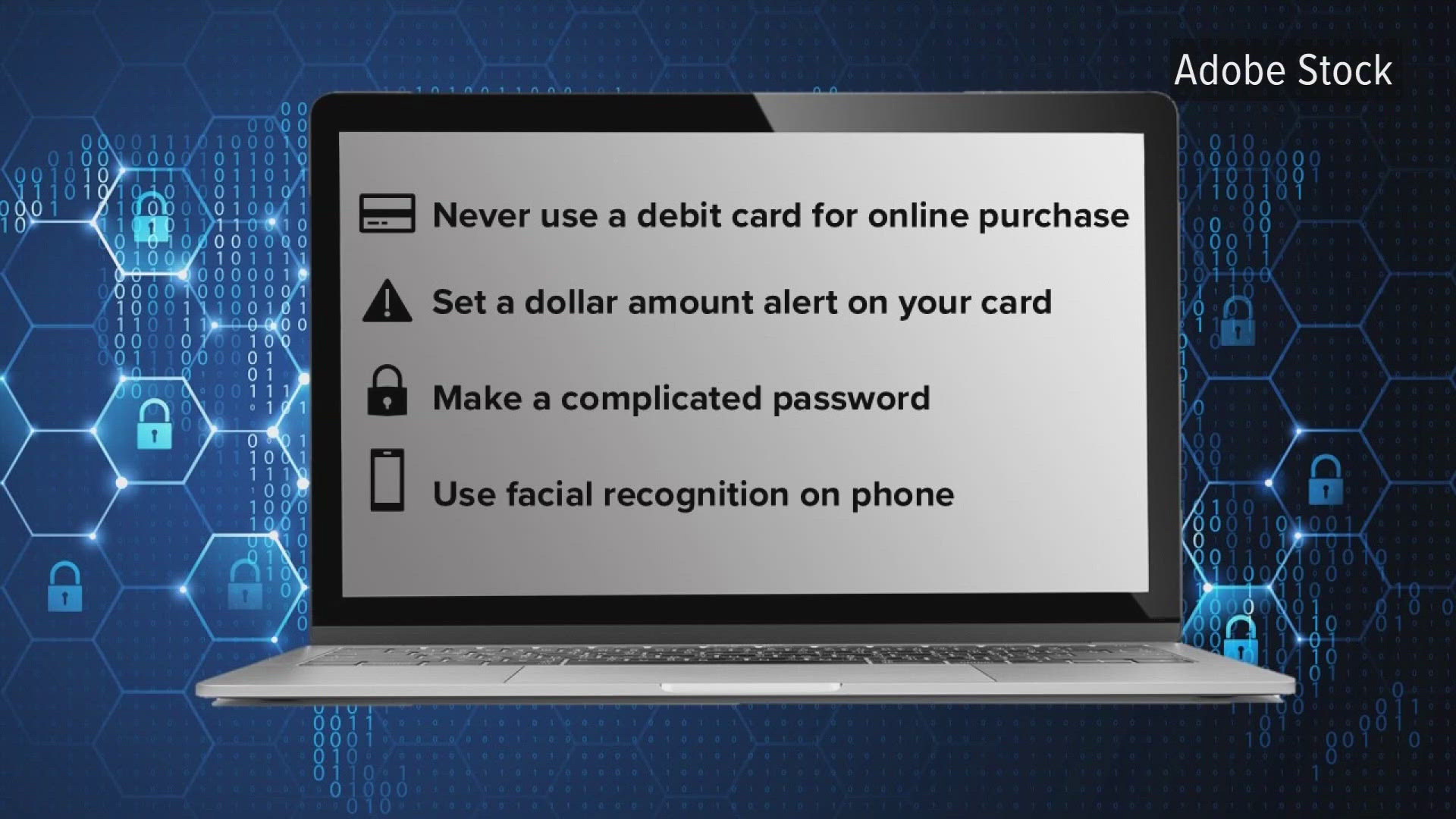COLUMBUS, Ohio — It can begin by opening an unsolicited email message, buying something online with a debit card or even losing your cellphone.
Hackers are constantly looking for the easiest way to get their hands on your data.
Every 35 seconds, someone in the United States is the subject of a cybercrime, according to the Clark School at the University of Maryland. That’s one in three Americans every year. Ninety-five percent of cybersecurity breaches are due to human error.
Nonsecure usernames and passwords also give attackers more chance of success.
“Always be skeptical. Slow down, take a breath and think about it before you click that link,” said Joshua Skeens, CEO of Logically.
The Dublin, Ohio company has been in the cybersecurity business for 20 years helping businesses secure their data.
Skeens said there are several things everyone can do to protect their data so it doesn’t fall into the wrong hands.
Among the actions people can take right now:
- Avoid using your debit card to make online purchases. Use a credit card instead. This way, if your credit card is compromised, it won’t impact your bank account.
- Set a spending limit on your credit card. If your card is compromised, hackers can’t make large purchases.
- Don’t connect to public Wi-Fi. There is no guarantee it’s secured. Experts say if you do connect, never do banking while connected.
- Change your password to a sentence with a space and a character (ie. Gobuckeyes 2024$) Experts say this makes it harder for hackers to crack your password.
- Don’t save your passwords or credit card numbers on your computer. If your computer is hacked, Skeens says that’s the first think they’ll look for.
- Lastly, make sure your phone has face recognition, that way if your phone is lost it will make it more difficult for hackers to get inside.
As for home computers, Skeens says don’t follow a common mistake.
“Websites will let you store information on your web browser, which makes it convenient. It’s also one of the first places a cyber crook will go to get into the laptop. Once inside, they now have access to your web address, your name, all of your credit card data and I always recommend don’t do it,” he said.

